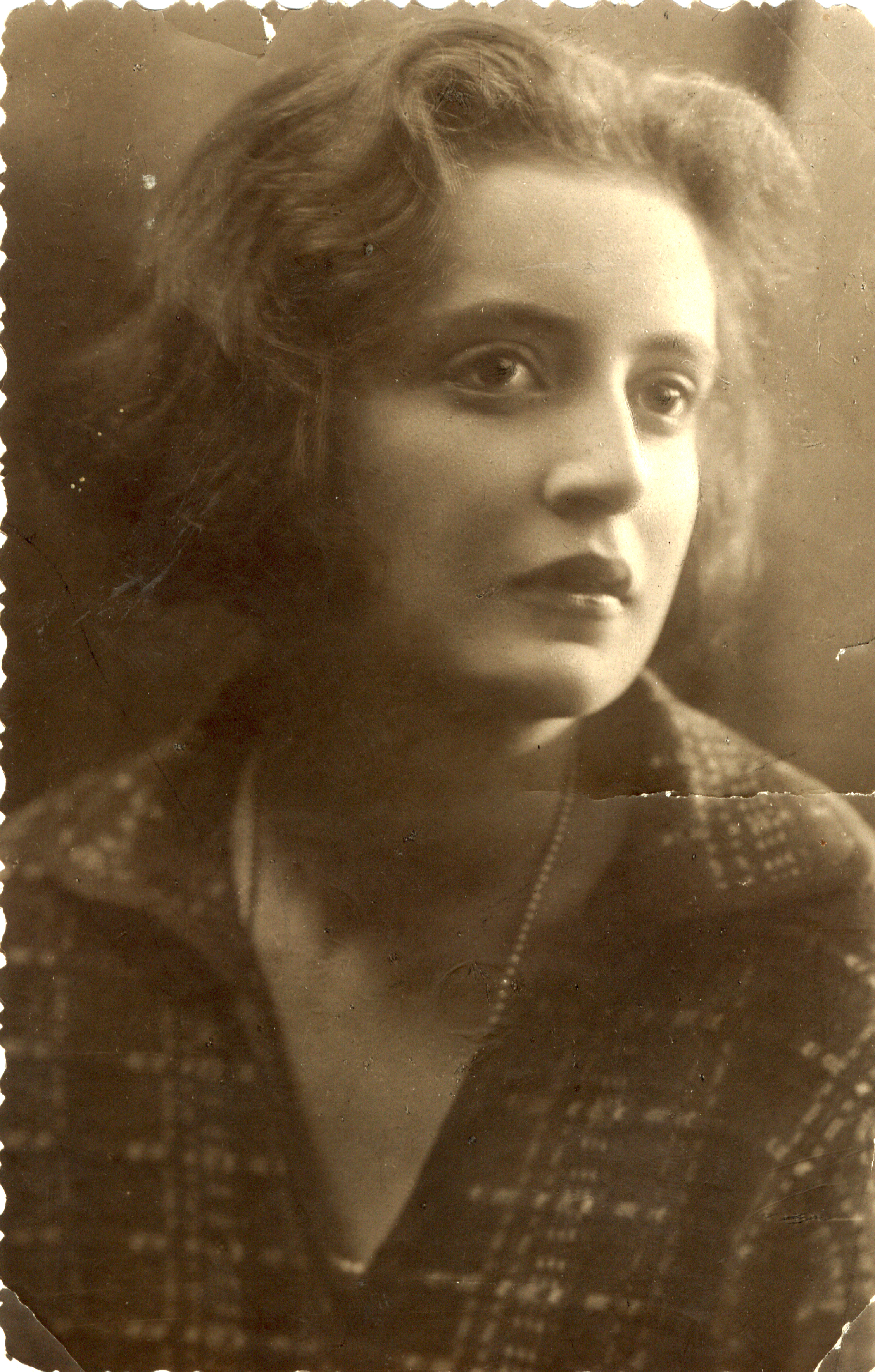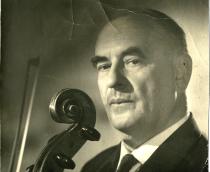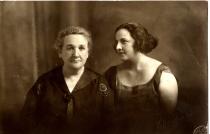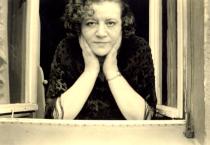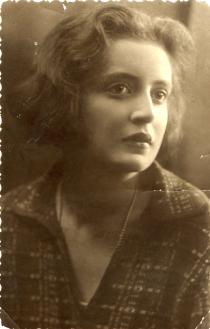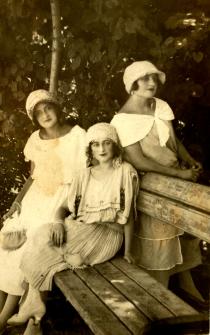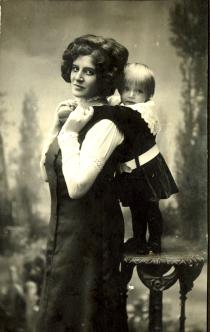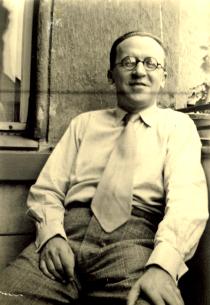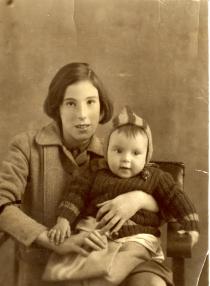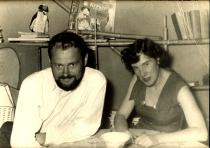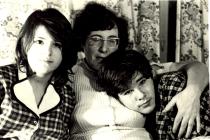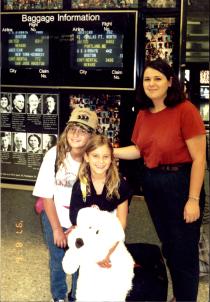My mother Selena Shwartzman-Pekker when she was young. The picture was taken in Moscow in 1924.
My mother was born in Warsaw in 1908. I don't know whether she got any Jewish education, but most likely, she didn't. It may have been high school. Then she finished Stanislavskiy theatrical studio at the Moscow Art Theater. She was an actress in this studio before her marriage. In 1925 my grandfather received an assignment in Berlin and he took his family there: my grandmother, my mother and my future father Grigoriy Pekker, violoncellist. In Berlin they lived for almost nine years and that was one of the brightest and most peaceful periods in the life of our family. My grandfather was working; my future father was finishing the Berlin Conservatory, my mother and grandmother were enjoying life, reading a lot. My mother didn't work. By the way, they spoke German at home, therefore, this language became my mother tongue.
According to my mother's stories, the family did not have a feeling of their Jewish status before 1930-31. However, in the thirties the situation changed dramatically. They talked a lot about Hitler and his policy at that time, but in 1931 or 32 my mother met him almost in person. My grandfather, being a member of Diplomatic Corps, was invited to watch some closed film. He took his daughter - my mother - with him. Getting through the dressed up crowd in the cinema they bumped into a man that was one single person who didn't step aside to let mother pass. After they took their seats grandfather Pyotr said to my mother: Do you know who this was? It was Adolph Hitler, a political carper-bagger". At the beginning on 1933 my mother saw a Jewish store looted. The people were running away in fear. Mama did not keep quiet and was taken by the police. She said it was a disgrace on an international level and that she was a Jewish, too. The policeman looked into her passport and said very politely that meanwhile they were not interested in the nationality of foreigners. When in few months the Soviet government started calling back their citizens from the fascist Germany many people never went back to the Soviet country. Our family returned because my mother insisted on it. Mama said then that she wanted to live in the country where they wouldn't remind her that she was a Jew. I didn't want to leave Germany, I was four and a half years old, and I had many friends and a wonderful German nanny Lizhen. From her I got pure Berlin pronunciation in the German language. My papa, a world known violoncellist Grigoriy Pekker, couldn't leave Berlin for Moscow either - he actively went on tours in Europe in 1930-33. He even toured Japan. He was the first Soviet performer of music there. It is interesting that when the question of departure turned up, he received employment proposal from various musical communities. He even got such invitations from Australia.
I was 19. Fortunately, the financial situation in our family allowed me not to work, just study. However, my mother earned some money to add to Papa's salary. She was making wooden summer shoes together with a carpenter and selling them at the market. She was earning her living this way until around 1950.
Since 1960 my parents were living in Novosibirsk, my father was Professor in the Conservatory and gave concerts. And anti-Semitism was much softer in the eastern and northern parts of the Soviet Union than in its central regions and particularly in Ukraine. Papa was working until the last days of his life. He died there, in Novosibirsk, in 1983, and my Mama died in 1986.
